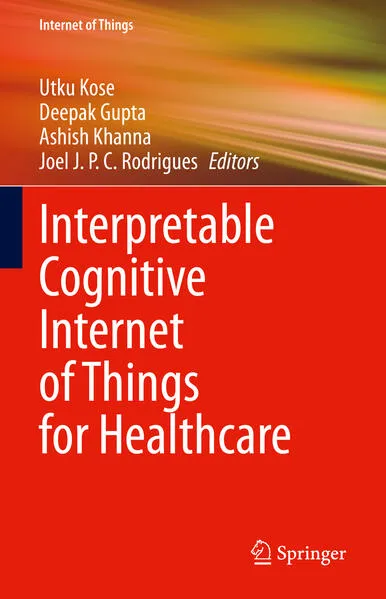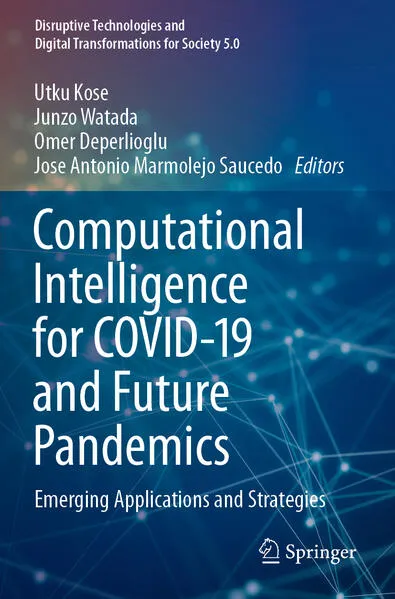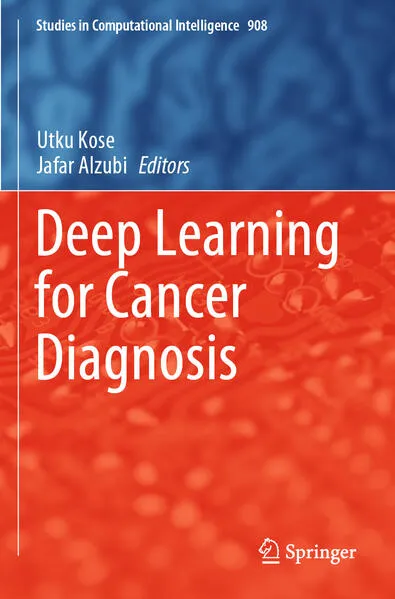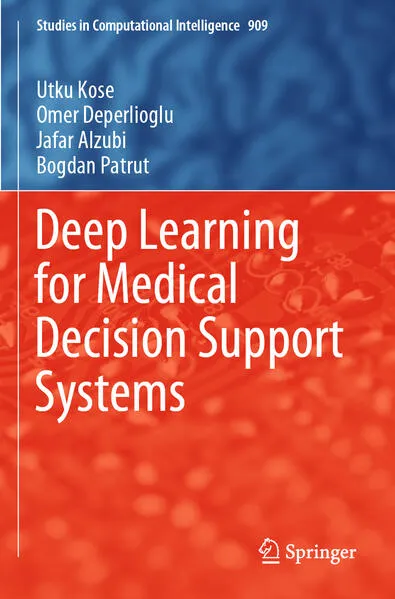
- Publikationen ca: 7
- Fragen & Antworten
Utku Kose
- Interpretable Cognitive Internet of Things for Healthcare
- Computational Intelligence for COVID-19 and Future Pandemics
Dr. Deepak Gupta is an eminent academician; plays versatile roles and responsibilities juggling between lectures, research, publications, consultancy, community service, Ph.D. and post-doctorate supervision, etc. With 13 years of rich expertise in teaching and two years in the industry; he focuses on rational and practical learning. He has contributed massive literature in the fields of Human-Computer Interaction, Intelligent Data Analysis, Nature-Inspired Computing, Machine Learning, and Soft Computing. He is working as Assistant Professor at Maharaja Agrasen Institute of Technology (GGSIPU), Delhi, India. He has served as Editor-in-Chief, Guest Editor, Associate Editor in SCI, and various other reputed journals. He has authored/edited 44 books with National/International level publishers (Elsevier, Springer, Wiley, Katson). He has published 158 scientific research publications in reputed International Journals and Conferences including 80 SCI Indexed Journals of IEEE, Elsevier, Springer, Wiley, and many more. He is senior IEEE member too. He has 3 published patents to his credit.
Dr. Ashish Khanna has 16 years of expertise in Teaching, Entrepreneurship, and Research & Development He received his Ph.D. degree from the National Institute of Technology, Kurukshetra in 2017. He has completed his M. Tech. in and B. Tech. from GGSIPU, Delhi in the year of 2009 and 2004 respectively. He has completed his postdoc from the Internet of Things Lab at Inatel, Brazil, and the University of Valladolid, Spain. He has around 61 SCI-indexed papers in IEEE Transaction, Springer, Elsevier, Wiley, and many more reputed Journals with a cumulative impact factor of above 175 to his credit. He has published around 125 research articles in the form of top SCI/ Scopus journals, conferences, and book chapters. He is a co-author and co-editor of around 28 edited and textbooks. His research interest includes Data Science, Bio-Medical, Distributed Systems, MANET, FANET, VANET, IoT, Evolutionary Computing, and many more. He has served the research field as a Keynote Speaker/ Faculty Resource Person/ Session Chair/ Reviewer/ TPC member/ post-doctorate supervision. He is convener and Organizer of ICICC and ICDAM conference series. He is currently working as Associate Prof. at the Department of Computer Science and Engineering, Maharaja Agrasen Institute of Technology, under GGSIPU, Delhi, India. He is also serving as series editor in Elsevier and De Gruyter. He is senior IEEE member too. He has 3 published patents to his credit.
Prof. Joel J. P. C. Rodrigues (joeljr@ieee.org) [S’01, M’06, SM’06, F’20] is a professor at the Federal University of Piauí (UFPI), Brazil; senior researcher at the Instituto de Telecomunicações, Portugal; and collaborator of the Post-Graduation Program on Teleinformatics Engineering at the Federal University of Ceará (UFC), Brazil. He has been professor at the National Institute of Telecommunications, Brazil; University of Beira Interior (UBI), Portugal and visiting professor at the University of Fortaleza (UNIFOR), Brazil. He received the Academic Title of Aggregated Professor in computer science and engineering from UBI, the Habilitation in computer science and engineering from the University of Haute Alsace, France, a PhD degree in computer science and engineering and an MSc degree from the UBI, and a five-year BSc degree (licentiate) in computer science and engineering from the University of Coimbra, Portugal. His main research interests include IoT and sensor networks, ehealth technologies, vehicular communications, and mobile and ubiquitous computing. Prof. Rodrigues is the leader of the Next Generation Networks and Applications research group (CNPq), IEEE Distinguished Lecturer [2018-2021], Director for Conference Development - IEEE ComSoc Board of Governors [2018- 2019], Technical Activities Committee Chair of the IEEE ComSoc Latin America Region Board [2018-2019], the President of the scientific council at ParkUrbis – Covilhã Science and Technology Park, a Past-Chair of the IEEE ComSoc Technical Committee on eHealth, a Past-chair of the IEEE ComSoc Technical Committee on Communications Software, Steering Committee member of the IEEE Life Sciences Technical Community and Publications co-Chair, and Member Representative of the IEEE Communications Society on the IEEE Biometrics Council. He is the editor-inchief of the International Journal on E-Health and Medical Communications and editorial board member of several high-reputed journals. He has been general chair and TPC Chair of many international conferences, including IEEE ICC, IEEE GLOBECOM, IEEE HEALTHCOM, and IEEE LATINCOM. He is a member of many international TPCs and participated in several international conferences organization. He has authored or coauthored over 900 papers in refereed international journals and conferences, 3 books, 2 patents, and 1 ITU-T Recommendation. He had been awarded several Outstanding Leadership and Outstanding Service Awards by IEEE Communications Society and several best papers awards. Prof. Rodrigues is a licensed professional engineer (as senior member), member of the Internet Society, a senior member of ACM, and an IEEE Fellow.
Interpretable Cognitive Internet of Things for Healthcare
This book presents research on how interpretable cognitive IoT can work to help with the massive amount of data in the healthcare industry. The authors give importance to IoT systems with intense machine learning features; this ensures the scope corresponds to use of cognitive IoT for understanding, reasoning, and learning from medical data.
Interpretable Cognitive Internet of Things for Healthcare
This book presents research on how interpretable cognitive IoT can work to help with the massive amount of data in the healthcare industry. The authors give importance to IoT systems with intense machine learning features; this ensures the scope corresponds to use of cognitive IoT for understanding, reasoning, and learning from medical data.
Computational Intelligence for COVID-19 and Future Pandemics
The book covers a wide topic collection starting from essentials of Computational Intelligence to advance, and possible application types against COVID-19 as well as its effects on the field of medical, social, and different data-oriented research scopes.
Computational Intelligence for COVID-19 and Future Pandemics
The book covers a wide topic collection starting from essentials of Computational Intelligence to advance, and possible application types against COVID-19 as well as its effects on the field of medical, social, and different data-oriented research scopes.
Computational Intelligence for COVID-19 and Future Pandemics
The book covers a wide topic collection starting from essentials of Computational Intelligence to advance, and possible application types against COVID-19 as well as its effects on the field of medical, social, and different data-oriented research scopes.
Deep Learning for Cancer Diagnosis
This book explores various applications of deep learning to the diagnosis of cancer,while also outlining the future face of deep learning-assisted cancer diagnostics. As is commonly known, artificial intelligence has paved the way for countless new solutions in the field of medicine.
Deep Learning for Medical Decision Support Systems
This book explores various applications of deep learning-oriented diagnosis leading to decision support, while also outlining the future face of medical decision support systems. Artificial intelligence has now become a ubiquitous aspect of modern life, and especially machine learning enjoysgreat popularity, since it offers techniques that are capable of learning from samples to solve newly encountered cases.






